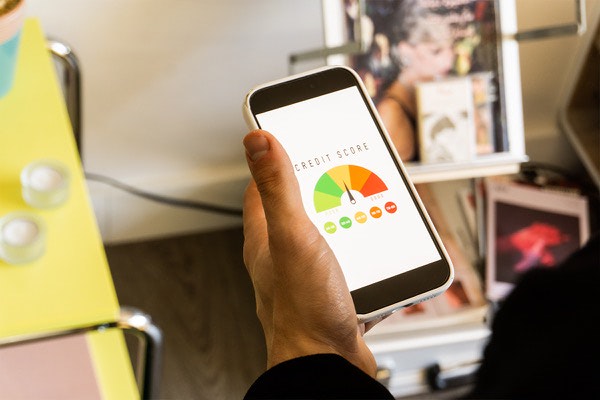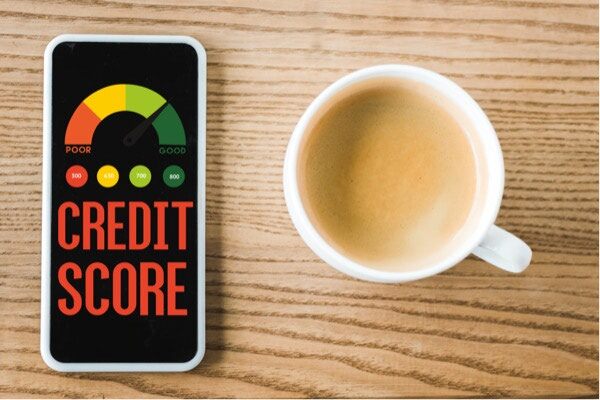How does one improve their credit score? Here are four key tips to help you build your credit profile this year.

Is it possible to buy a home with debt?
You might be interested in purchasing a home, but right now you’re dealing with some debt. Does that mean your buying plans will have to wait? Not necessarily! Buying a home with debt can be an option for many Canadians. It all depends on your unique circumstances and how you are handling your current debts. Let’s dive into the question of whether or not buying a home with debt is an option for you!
The short answer is yes
To keep it overly simplified, yes, you can buy a home with debt. That doesn’t always mean you should, but in many cases it is certainly possible. Many Canadians have some form of debt. This might be from paying off a new car or home renovation, credit cards or lines of credit, and student loans. The huge levels of inflation in Canada have meant more debt for many people. Even apart from inflation, many people can’t afford to buy a car or send a child to school without some extra financing and debt to pay off, and this is quite common and normal. Many home buyers are not completely debt-free, and it’s often unrealistic to expect all buyers to be debt-free before they want to purchase a home. The important thing is to have a strong handle on your debts and show you can take care of them. How do you do that? Well, a lot of it comes down to debt service ratios.
Debt service ratios are a big factor
Debt service ratios are key numbers lenders will examine when they receive a mortgage application. These figures show how well an applicant is dealing with debt, and whether they can handle a mortgage. If you’re trying to buy a home with debt, these two ratios are essential.
Gross debt service (GDS) ratio
A GDS ratio focuses on how much money you need to pay for housing expenses in comparison to your income. Housing expenses are items required to maintain your home, like mortgage payments or rent, utilities, and property taxes. The ratio compares this number to your monthly income, then gives you a percentage. If you make $5000 per month, and $2000 of that goes toward housing expenses, your GDS ratio is 40 per cent. Remember that housing expenses do not include things like groceries or wifi. That’s part of your TDS ratio (below).
Your GDS ratio should generally stay below 35 per cent in order to secure the best products from lenders. This is the magic number for lenders to believe you have the ability to comfortably manage a mortgage without falling into financial trouble. As you can tell, lenders primarily focus on the percentage figure, not the exact amount of debt. This means if you carry debt, but also have a large income, your GDS ratio may fall into an acceptable range.
Total debt service (TDS) ratio
Your TDS ratio has the same concept as a GDS ratio, but it also includes monthly expenses not related to housing. This is where your internet and mobility costs come in. This ratio can be a bit higher, generally up to 42 per cent, to be acceptable for lenders. If your ratios fall beyond the ideal range, that doesn’t mean all hope is lost. You may be able to either secure a mortgage from a private lender, or else work on reducing your ratios before applying for a mortgage.
The ups and downs of buying a home with debt
The upside
Buying a home with debt right now can be the right choice for many people. Property values are starting to settle or decline, and demand is dropping off. This means you will have less competition in the market, and are less likely to encounter the sky-high housing prices we were dealing with one year ago. A lower purchase price means a lower mortgage amount, and therefore a smaller debt than when prices were high. Once you own a home, you can also start building equity on your new asset. This allows you to grow the value of your home earlier.
The downside
Of course, buying a home with debt isn’t always the best option. If your debts are already taking up a lot of your income, adding onto it is likely not a good idea. If you bite off more than you can chew, you can end up being house poor, which means you need to spend a majority of your income on housing expenses. Buying a home with a lot of debt may also affect your approval, as lenders will be more cautious about approving you for a larger loan when you already have financial obligations. If debt is a big part of your life, it can interfere with your buying plans.
Reducing debt
If you’re hoping to clear out some debt before you apply for a mortgage, there’s certainly nothing wrong with that. All debts are unique, which means your situation will not be the exact same as your sister’s or your coworker’s. Debt reduction comes in many forms, from strategizing your repayment plan to throwing your credit card in the freezer. We published a blog not too long ago that goes into detail about reducing debt. If you’re interested, you can check out that discussion here.
If you decide to take the plunge and buy a home with debt, we encourage you to reach out to a mortgage broker! We can examine your situation and help you figure out the best next steps. It always pays off to have a broker on your team when it comes to purchasing a home!
If you have any questions about your mortgage, get in touch with us at Clinton Wilkins Mortgage Team! You can call us at (902) 482-2770 or contact us here.


